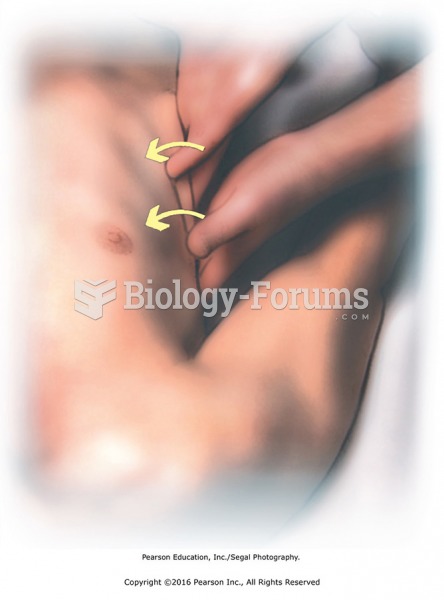|
|
|
Recent studies have shown that the number of medication errors increases in relation to the number of orders that are verified per pharmacist, per work shift.
The most dangerous mercury compound, dimethyl mercury, is so toxic that even a few microliters spilled on the skin can cause death. Mercury has been shown to accumulate in higher amounts in the following types of fish than other types: swordfish, shark, mackerel, tilefish, crab, and tuna.
Pubic lice (crabs) are usually spread through sexual contact. You cannot catch them by using a public toilet.
The Romans did not use numerals to indicate fractions but instead used words to indicate parts of a whole.
The heart is located in the center of the chest, with part of it tipped slightly so that it taps against the left side of the chest.







